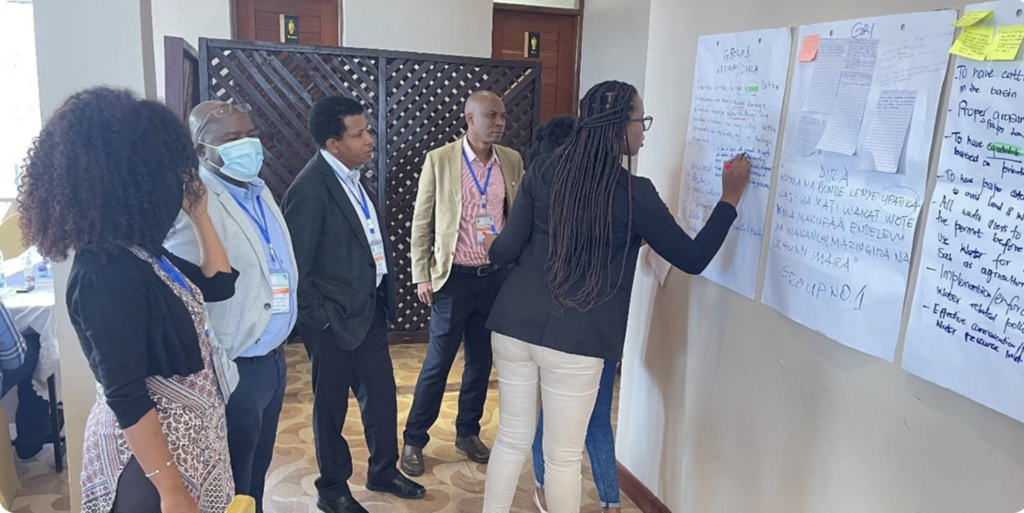How trust in science played a pivotal role in water resource management
Tanzania’s Rufiji River Basin is a crucial water resource. Water Engineer Dr Augustina Alexander shares lessons learned from a research consortium that involved many community stakeholders.

The people you look up to as a child can have a profound impact on your future. For Dr Augustina Alexander, it was doctors:
“What I saw as a child is that when you get sick, you go to the hospital, see the doctor and then you’re fine,” she recalled. “That was a great inspiration to me.”
When Augustina was just 8, she told her family she wanted to study medicine so she could be a doctor one day. Her mother, who was an accountant, told her that to achieve her ambition, she needed to take science subjects at school.
This was the first step in a journey that would ultimately lead Augustina to research water resource management in a highly competitive water region. In fact, she dealt with water scarcity in her town growing up. But for now, she was set on pursuing medicine.
Then in high school, she made a discovery that changed her career path: She realized that her real aptitude was for physics — not biology. That aptitude meant she would be better suited for engineering than medicine.
The next hint of an obstacle came from a tutor.
Is there a place for women in engineering?
“My tutor was about to start university and told me there were no women in his class taking subjects like environmental engineering,” she recalled. “He seemed to be implying that women could not excel in this field because they weren’t studying it.”
But the idea of pursuing a male-dominated specialty did not put Augustina off — it had the opposite effect: “This gave me a big push! I thought, ‘OK, I need to change this.’”
Childhood struggles with water
Augustina went on study at the University of Dar es Salaam, Tanzania, taking courses in civil and water resources engineering. She soon fell in love with the field, finding herself transported back to the challenges she had experienced as a child in her local community:
This was a field I could relate directly to. I’ve seen the issues of water becoming diseased and the challenges most women in rural areas face with water and sanitation.
I grew up in a town where tap water was always available. But then there was a time when the water just stopped. We had to carry buckets to a distant village to get water, joining a long queue of people.
When access to water suddenly stops, you soon realize how much of your life functions on the availability of it.
Read the full article on Elsevier Connect: “How trust in science played a pivotal role in water resource management“, Milly Sell, 29 July 2024.

















